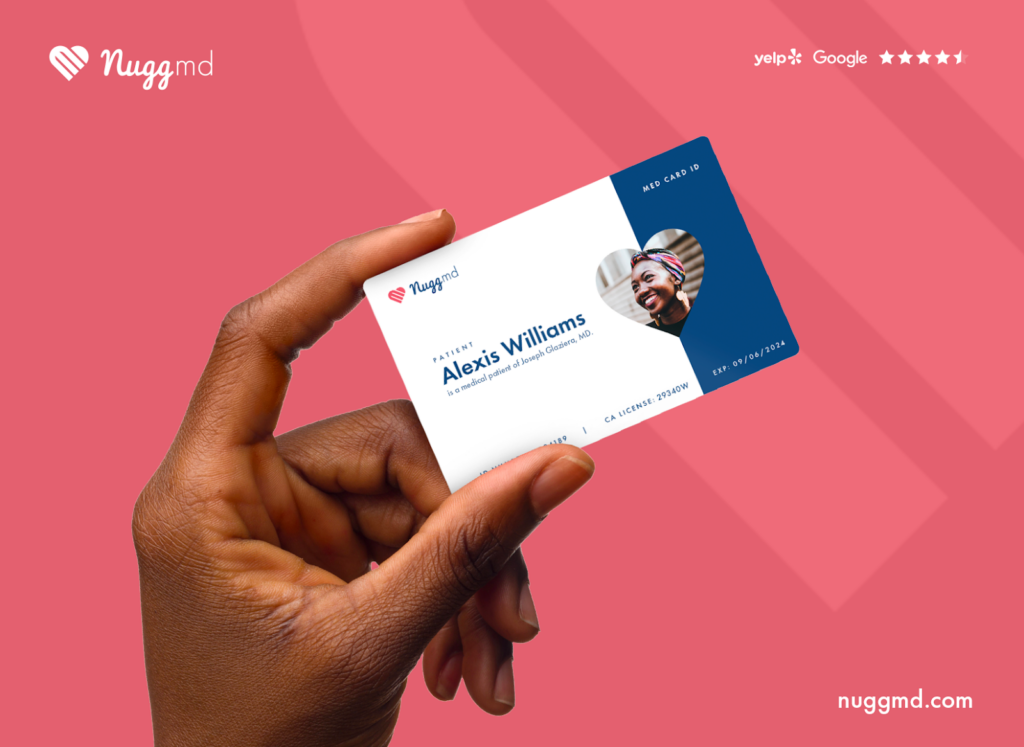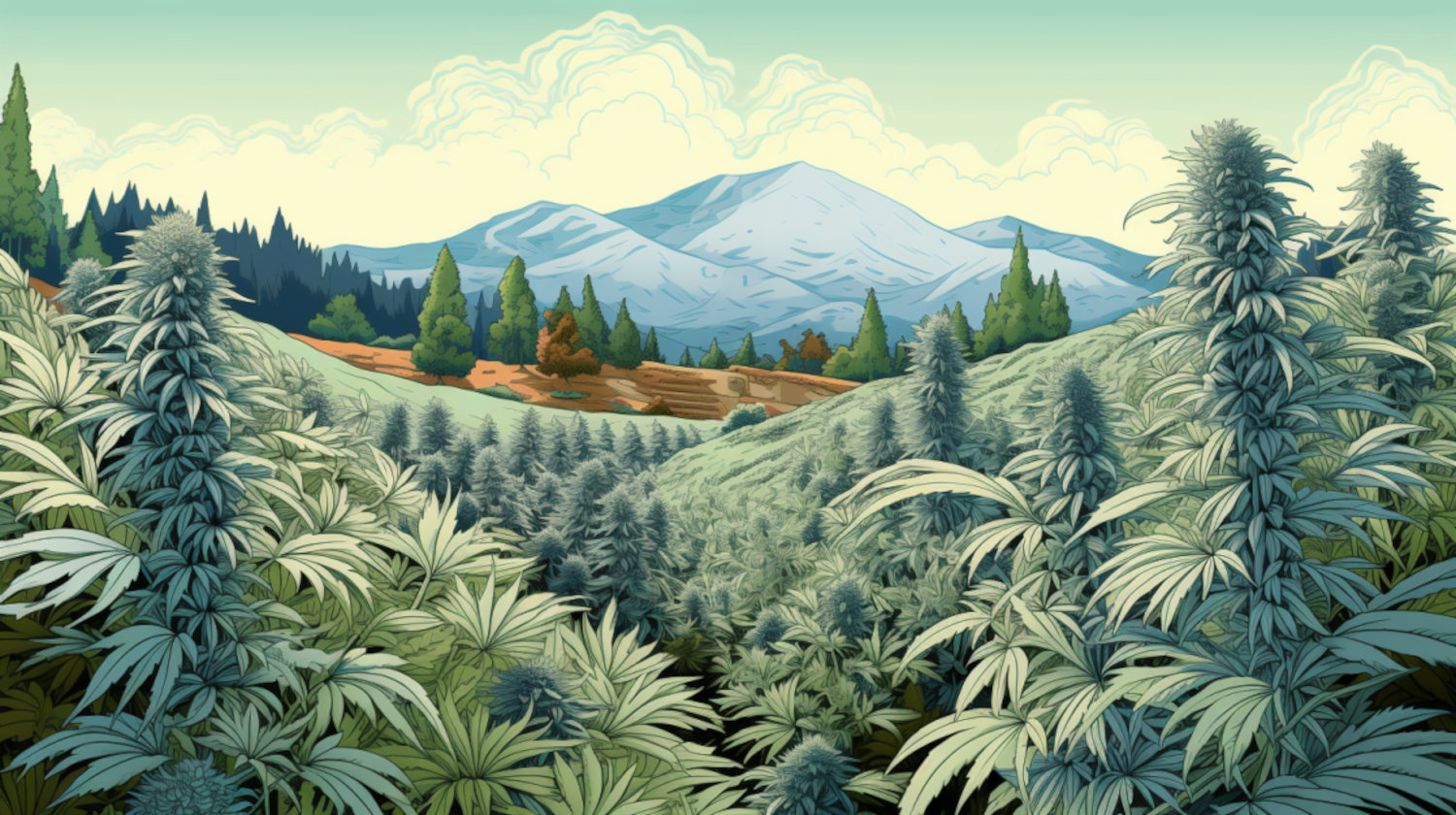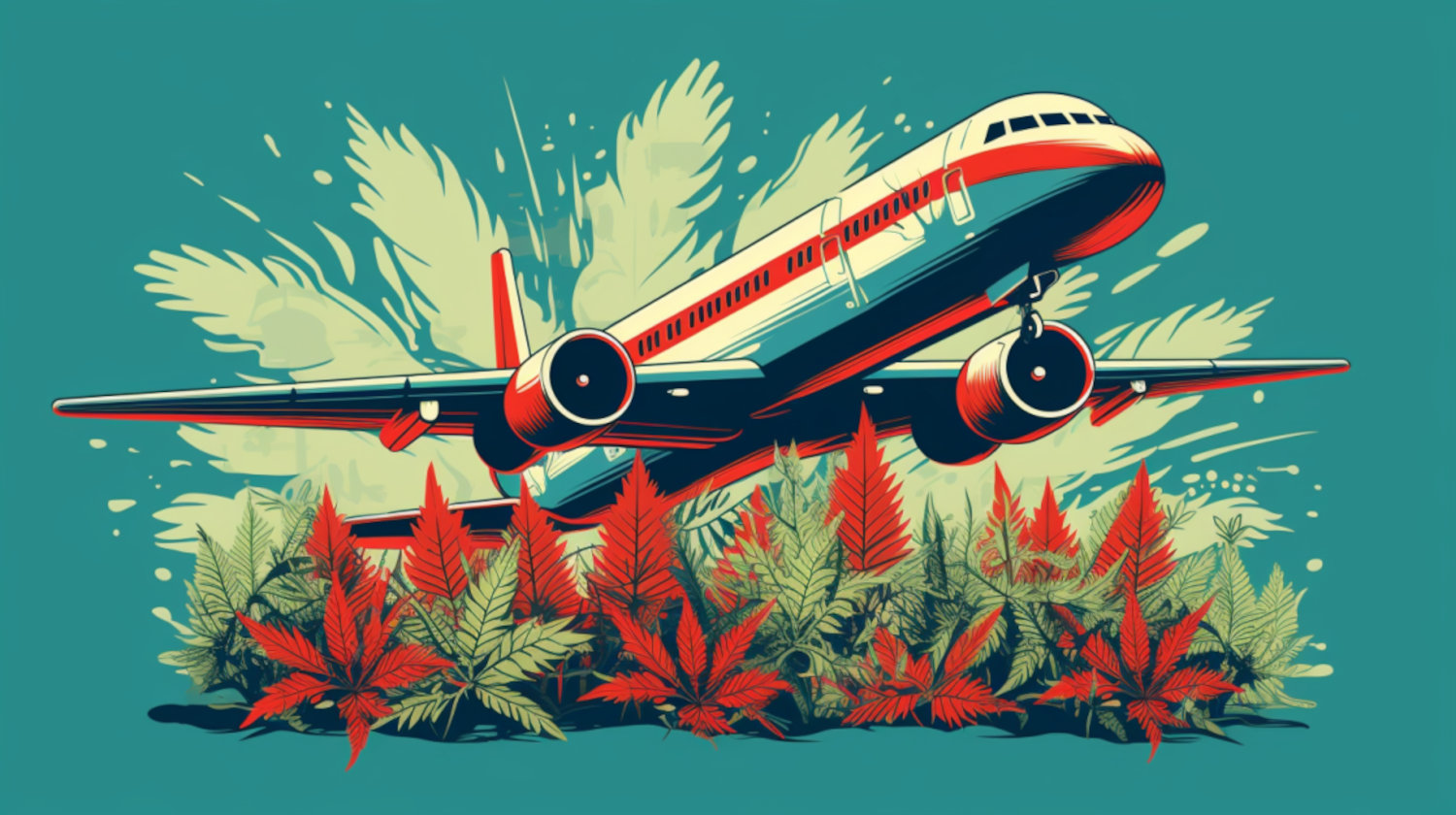In This Article
- How Old Do You Have to Be to Buy CBD?
- Legal Age to Buy CBD Per State
- States That Have No Age Restrictions on CBD Purchases
- What is the difference between CBD and THC?
- Is there a maximum THC level in marijuana-based CBD?
- Can I get high from CBD?
- Is CBD safe for child patients?
- Is CBD safe for pets?
- What’s the difference between CBD from hemp and CBD from cannabis?
- How NuggMD Can Help
- Can Minors Use CBD?
Key Takeaways
- The federal legal age to buy hemp-derived CBD is 18, but some states and retailers set it at 21.
- Age restrictions can vary by product type. CBD vapes often require buyers to be 21+, while topicals and tinctures may be available at 18.
- Minors may be allowed to use CBD with a doctor’s recommendation or parental consent, depending on state laws.
Medical cannabis is not legal in every state just yet. Only 37 states currently allow legal cannabis, and many have tight restrictions on who can access products and what is available.
Cannabidiol (CBD) is a non-intoxicating cannabinoid produced by hemp and cannabis plants. In 2018, the Farm Bill legalized hemp and made hemp-derived CBD federally legal. The US federal government defines hemp as any cannabis plant with a concentration of THC less than 0.3%. Those concentrations produce little to no intoxicating effects (unless the product contains delta-8 THC, delta-10 THC, HHC, or another synthetically produced intoxicating cannabinoid isomer).
CBD has been studied for its various potential therapeutic benefits, including anti-inflammatory, anti-anxiety, and anti-muscle spasm properties. With an array of reported benefits – and without the intoxicating effect of THC – many consumers (especially medical patients, including those classified as minors) – have turned to CBD as a mild alternative to THC-rich options.
And while hemp-derived CBD is widely available, the idea of the entourage effect has raised questions as to whether CBD from hemp is as effective as CBD extracted from cannabis. Getting cannabis-derived CBD requires a medical cannabis card in most states where marijuana is legal. Legal cannabis, even CBD, often comes with strict regulations that define age requirements and other legal limitations.
This article will discuss the legal age limit for buying CBD and how it varies depending on your state and the type of CBD product you’re purchasing.
How Old Do You Have to Be to Buy CBD?
The 2018 Farm Bill doesn’t specify age restrictions for purchasing CBD derived from hemp. But many states and retailers require customers to be 21 or older, especially for inhalable products like CBD vapes or flower.
Some products, like lotions or tinctures, may be available at 18 depending on where you shop. Always bring valid ID, especially for smokable or edible CBD products.
Regardless of how a state approaches hemp-derived CBD sales, cannabidiol that is derived from cannabis and contains greater than 0.3% THC will likely see greater regulations. In states with a recreational cannabis program, THC-rich CBD products are typically only available to adults over 21.
States with medical cannabis programs may have lower age requirements in certain circumstances. Still, these are typically accompanied by the requirement to obtain a med card, physician recommendation, parent approval, and/or a qualified caregiver to purchase CBD products that are derived from cannabis.
Legal Age to Buy CBD Per State
As with most cannabis laws, the regulations surrounding CBD vary by state. Many states haven’t passed CBD laws, and instead default to the Farm Bill. Others have put age restrictions in place for people under 18 or 21. Unfortunately, state documentation is spotty at best, and it can be difficult to understand your state’s guidelines.
Regardless of state laws, people under 18 should seek a doctor’s recommendation before purchasing or using CBD.
Most states allow unrestricted sales of non-intoxicating hemp-derived CBD products, but intoxicating hemp-derived CBD products containing delta-8 or other synthetic THC products are banned or regulated in several states.:
- Alabama: Delta-8 is legal in Alabama, and no age restrictions are mentioned for purchasing delta-8 products.
- Alaska: Delta-8 is illegal in Alaska, and possession of it can range from a Class C misdemeanor to a felony, depending on the quantity and intent. No specific age restrictions for purchasing Delta-8 are mentioned.
- Arizona: It is not entirely clear whether delta-8 is illegal in Arizona. Delta-8 products are restricted and regulated under the state's cannabis regulatory framework. No specific age restrictions for purchasing delta-8 are mentioned.
- Arkansas: Delta-8 THC is illegal in Arkansas.
- Colorado: Delta-8 THC is illegal in Colorado.
- Delaware: Delta-8 THC is illegal in Delaware.
- Hawaii: Delta-8 THC is illegal in Hawaii.
- Idaho: Delta-8 THC is illegal in Idaho.
- Iowa: Delta-8 THC is illegal in Iowa.
- Montana: Delta-8 THC is illegal in Montana.
- New York: Delta-8 THC is illegal in New York.
- North Dakota: Delta-8 THC is illegal in North Dakota.
- Oregon: Delta-8 THC is illegal in Oregon.
- Rhode Island: Delta-8 THC is illegal in Rhode Island.
- Utah: Delta-8 THC is illegal in Utah.
- Virginia: Delta-8 THC is illegal in Virginia.
- Vermont: Delta-8 THC is illegal in Vermont.
- Washington: Delta-8 THC is illegal in Washington.
- West Virginia: Delta-8 THC is illegal in West Virginia.
Please note that this information is based on currently available data, and the legal status of delta-8 or synthetic THC products may change. While we’ll try to keep the above table updated, verifying the current laws and regulations in each state is essential. Additionally, some states may require purchasing delta-8 products through specific channels, such as dispensaries.
To further complicate matters, CBD laws can change rapidly. The DEA is considering banning Delta-8 products at the federal level, as well as lowering the percentage of THC allowed in hemp-derived products to 0.1% THC.
If you’re unsure about the CBD laws where you live, refer to your state’s official resources or seek legal counsel.
States That Have No Age Restrictions on CBD Purchases

The CBD market is still very young, and regulation remains sparse. Many states have not passed their own CBD laws or imposed age restrictions, instead focusing their efforts on the regulation of adult-use and medical cannabis programs. Those that have passed restrictions on the manufacture or sale of hemp-derived CBD may not publish those in easy-to-find locations, making it hard for consumers to know which states do and don’t have their own regulations for cannabidiol.
On the federal level, the Farm Bill is the only piece of legislation governing the CBD market, and it does not specify anything about age restrictions on sales. While the FDA has been working on regulations for CBD, it has chosen to defer to Congress, which has yet to take action in 2023. This leaves CBD largely unregulated at both the state and federal levels.
What is the difference between CBD and THC?
CBD and THC are both cannabinoids. They are also the most common cannabinoids produced by the cannabis plant. That’s where the similarities stop, though. THC is the cannabinoid that is responsible for the intoxicating effects of cannabis. It mimics the endocannabinoid, anandamide, and typically binds to CB1 receptors. CBD, on the other hand, doesn’t mimic a known endocannabinoid and interacts with the body in a different way that doesn’t produce an intoxicating effect.
Is there a maximum THC level in marijuana-based CBD?
The distinction between hemp and marijuana is mainly a legal one. They are the same plant in most regards. The federal government differentiates between the two for medical and legal purposes, choosing to call cannabis with below 0.3% THC “hemp” and everything with higher THC levels “marijuana.”
CBD and THC are both cannabinoids; pure, isolated CBD can’t contain THC (and vice versa). However, CBD products, like oils, can contain some THC. For a CBD product to be federally legal, it must come from a hemp plant and contain less than 0.3% THC.
In states where marijuana is legal for medical or recreational purposes, CBD products with greater than 0.3% THC are sold at a state-licensed dispensary. They are subject to the same restrictions as other medical or recreational cannabis products. Depending on the product, maximum THC levels can vary greatly. CBD products are typically sold in ratios to THC that range from 1:1 to 30:1 high THC or CBD.
Can I get high from CBD?
No. CBD by itself does not produce an intoxicating “high”. Although CBD acts on the body differently than THC, depending on the dosage, it can cause drowsiness, relaxation, and other non-intoxicating effects associated with some high-THC cannabis products.
Is CBD safe for child patients?
There isn’t much research indicating that there are dangers associated with CBD and even less on its effects on children. To be safe, CBD should only be used by children with a physician’s recommendation and according to state laws.
Is CBD safe for pets?
The research on CBD in animals is limited. The FDA has not approved CBD for use in animals, but some states have passed legislation allowing vets to discuss cannabis as a potential treatment plan for pets.
While research is limited, there are countless reports from people who have given their animal companions CBD to positive effect. CBD is most well-understood in dogs, where people report results in alleviating pain and anxiety. Consult your veterinarian before giving your animals CBD.
What’s the difference between CBD from hemp and CBD from cannabis?
Chemically, CBD is CBD, regardless of whether it is derived from hemp or cannabis. Many patients prefer whole plant extracts that include other cannabinoids and terpenes from the plant, believing this delivers greater benefit than CBD isolate.
Still, the federal government distinguishes hemp-derived and cannabis-derived CBD legally. The CBD from hemp is legal on the federal level as long as it contains less than 0.3% THC.
CBD from cannabis – commonly referred to as marijuana in federal law – is any CBD that comes from a plant that contains more than 0.3% THC. This CBD is illegal on the federal level, regardless of how much THC the finished product contains. These CBD products can contain higher concentrations of THC, but are only available at licensed dispensaries in states with medical or recreational cannabis programs.
How NuggMD Can Help

Despite its medical benefits, getting CBD for a patient under 18 can be tricky. While some states default to the Farm Bill and allow the sale of hemp-derived CBD to all eligible consumers, others restrict the purchase of CBD to adults over 18 (or even 21).
Cannabis-derived CBD with higher concentrations of THC isn’t available in every state, either, and most often requires a medical cannabis card. For patients under 18 (and depending on the state), this can require parental approval, multiple physician recommendations, and designating a qualified cannabis caregiver to purchase and administer the product.
People under 18 should consult with a qualified doctor before using CBD. NuggMD can connect you with a licensed medical professional in your state who understands the potential applications and drawbacks of cannabis and provide an honest evaluation of your condition.
Can Minors Use CBD?
In most states, minors can't legally purchase CBD on their own — but there are exceptions. With a doctor’s recommendation or parental consent, minors may be allowed to use CBD, especially for medical conditions like epilepsy or anxiety.
Parents or guardians typically have to purchase the product and oversee its use. If you’re unsure about the laws in your state, check local regulations or speak with a medical provider familiar with CBD.
The information in this article and any included images or charts are for educational purposes only. This information is neither a substitute for, nor does it replace, professional legal advice or medical advice, diagnosis, or treatment. If you have any concerns or questions about laws, regulations, or your health, you should always consult with an attorney, physician or other licensed professional.




